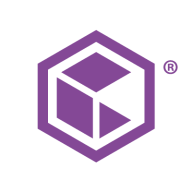

Commvault Cloud and Nasuni are competitive in the data management category. Commvault Cloud appears to have the upper hand in backup and recovery, while Nasuni offers superior file storage efficiency and collaboration.
Features: Commvault Cloud shines with powerful backup and recovery capabilities across hybrid and multi-cloud environments. Features include global deduplication, cloud integration, and a centralized platform. It supports extensive applications and scales for various workloads. Nasuni focuses on file storage efficiency with continuous file versioning, global file locking, and disaster recovery. It allows enterprises to deploy storage capacity on demand and includes a unified file system for seamless access and collaboration among distributed teams.
Room for Improvement: Commvault Cloud users suggest enhancements in user interface navigation, integration with emerging technologies, streamlined deployment, stability, and reporting clarity. Improvements in documentation and training are also desired. Nasuni could enhance performance monitoring, user-friendliness, and support for high-performance scenarios. Users recommend better visibility in health systems for filers and improved integration capabilities, especially for Dropbox.
Ease of Deployment and Customer Service: Commvault Cloud supports private, public, and hybrid cloud environments with versatile deployment. Its robust technical support is recognized for quick resolutions and attentive customer service involving client feedback. Nasuni also endorses hybrid and cloud deployment, praised for quick issue resolution and strong organizational relationships. However, there is room for improvement in responsiveness and technical support proficiency, with service quality varying based on geography.
Pricing and ROI: Commvault Cloud is considered costly but justified by comprehensive features and enterprise-level solutions. Its competitive pricing, especially for long-term contracts, offers ROI through streamlined backup processes and infrastructure savings. Nasuni's pricing, based on per terabyte per year, includes cloud storage and local caching devices, viewed as cost-effective for scalable file storage solutions. Both solutions emphasize operational efficiencies and storage infrastructure cost savings but target different data management challenges.
At the pre-sale cycle, we have spocks aligned from Commvault with whom we get in touch, and they provide all the required support that we need.
The number of people who know Commvault Cloud is lesser compared to Veeam.
Customer support has very closed departments, requiring us to shuffle between them to get one thing done because representatives have limited accessibility.
I rated the scalability as seven because even though the solution can scale, load balancing must be done manually, as it's not automated.
I have not faced any downtimes with Commvault Cloud.
Commvault Cloud is highly stable, and I would rate it a ten out of ten.
I would like to see AI capabilities in Commvault Cloud.
I feel that the support is not yet up to the mark, with not enough professional engineers to provide assistance.
I suggest Nasuni improve their syslog forwarders to support TCP protocol, as it's more secure than UDP, which is plain text and not protected at all.
Commvault Cloud is expensive, and there is room for the price to be 10-15 percent lower than what they are charging currently.
I prefer solutions with lower pricing.
We can back up unlimited TBs due to our per node license.
Other features include endpoint solutions, integration with Office 365, ransomware protection, archival for long-term retention, and no ingress or egress charges.
The public cloud acts as a bigger solution for the on-premise while the on-premise acts as a DR for the public cloud workloads.
The features I find most valuable in Nasuni are the unlimited snapshots, antivirus capabilities, auditing, and ransomware protection.
| Product | Market Share (%) |
|---|---|
| Commvault Cloud | 6.1% |
| Nasuni | 1.1% |
| Other | 92.8% |

| Company Size | Count |
|---|---|
| Small Business | 57 |
| Midsize Enterprise | 24 |
| Large Enterprise | 82 |
| Company Size | Count |
|---|---|
| Small Business | 3 |
| Midsize Enterprise | 8 |
| Large Enterprise | 24 |
Commvault Cloud is the ultimate cyber resilience platform built to meet the demands of the hybrid
enterprise. Beyond its core functionality of data backup and recovery across diverse workloads, including applications, databases, virtual machines, and files, Commvault Cloud stands out as a robust defense against ransomware. Going beyond backup, the platform integrates advanced data security features such as encryption, access control, and threat detection, safeguarding against unauthorized access and cyber threats.
With tools for data management, classification, and migration, businesses can optimize storage costs, enhance accessibility, and comply with regulations seamlessly. Boasting cloud integration with major providers like AWS, Azure, and Google Cloud, Commvault Cloud leverages the scalability and flexibility of the cloud for comprehensive data protection and management. The platform's automation capabilities streamline tasks, and its reporting and analytics features provide valuable insights into data usage, potential risks, and optimization strategies. Commvault Cloud is not just a security tool; it is a key component of cyber resilience, enabling organizations to not only protect against cyberattacks but also recover swiftly and minimize the impact of incidents. Elevate your cyber resilience strategy with Commvault Cloud.
Nasuni is a file data services enterprise focused on assisting firms with their digital transformation, global expansion, and information awareness. The Nasuni File Data Platform is a suite of cloud-based services designed to enhance user productivity, ensure business continuity, provide data intelligence, offer cloud options, and simplify global infrastructure. This platform and its auxiliary services are projected to replace conventional file infrastructure such as network attached storage (NAS), backup, and Disaster Recovery (DR), with an expandable cloud-scale solution. By storing file data in scalable cloud object storage from multiple providers, Nasuni positions itself as a cloud-native alternative for traditional NAS and file server infrastructure. Based in Boston, Massachusetts, USA, Nasuni serves sectors like manufacturing, construction, technology, oil and gas, financial services, and public sector worldwide, offering its services in more than 70 countries.
James J., IT Manager at a marketing services firm, says Nasuni’s management dashboard is helpful because he's able to view all of the different filers at once rather than check each one of them individually. He values the software’s security, reliability, good performance, helpful alerting, and responsive support.
According to a Server Engineering Services Lead at a mining and metals company, Nasuni offers good OR and DR capabilities, performs well, offers data security, and continuous file versioning helps recover from hardware failures.
The Managing Director of IT at a construction company appreciates Nasuni because it eliminates a lot of work that was previously done when managing backing up and restoring data files.
We monitor all Cloud Backup reviews to prevent fraudulent reviews and keep review quality high. We do not post reviews by company employees or direct competitors. We validate each review for authenticity via cross-reference with LinkedIn, and personal follow-up with the reviewer when necessary.